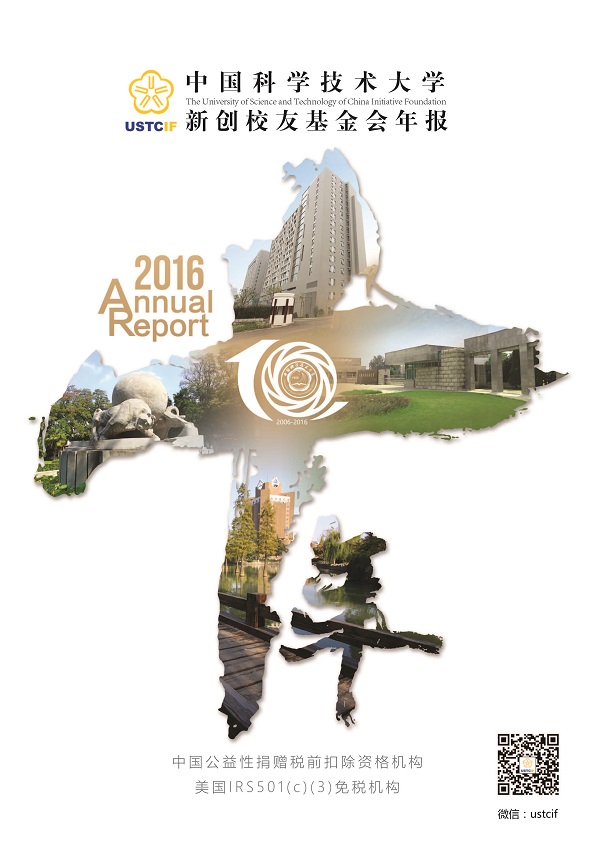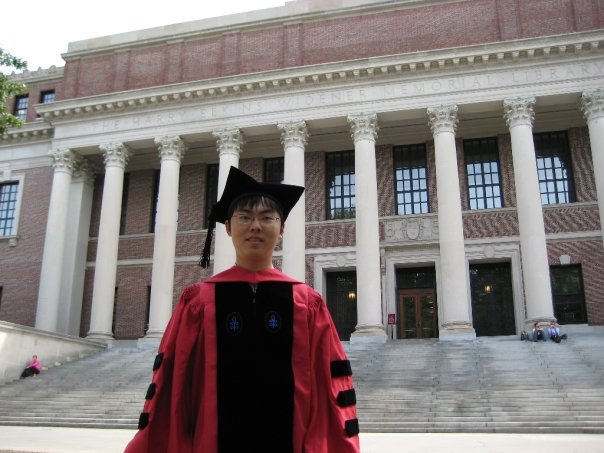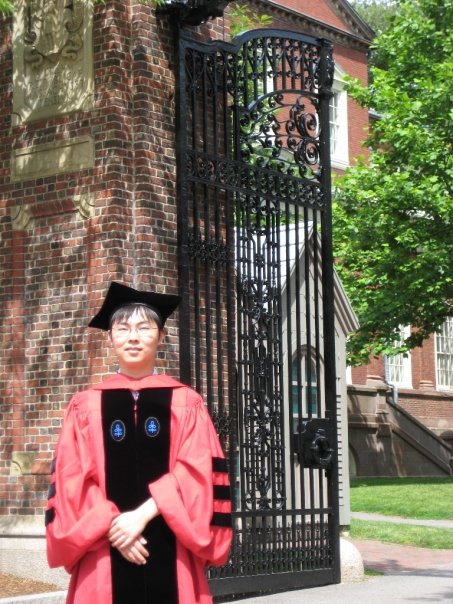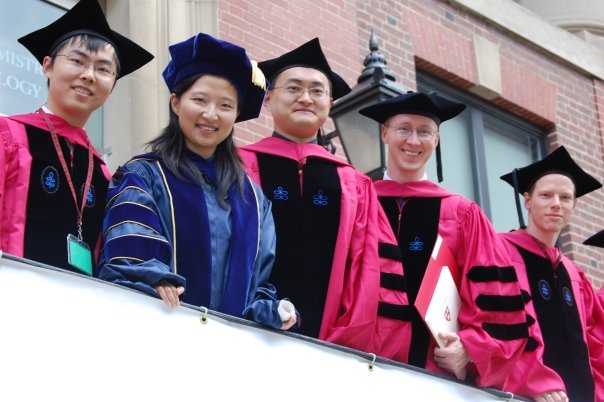刘诗欣:单分子技术探索
刘诗欣采用独特的单分子技术,研究基因表达的分子机制。使用这种方式,研究的不再是许多分子的共同属性,而是单个分子特有的特点和行为,并且提供基因表达中分子相互作用的实时、动态信息。这种方式为基因表达基础生物学提供了独特的视角。刘诗欣还将研究单个分子马达如何相互作用,并完成DNS转录与基因表达等关键任务。
刘诗欣,98少校友。1998年从安徽铜陵进入中国科大少年班学习。在哈佛大学获得博士学位,师从庄小威(87少)校友。现为加州大学伯克利分校博士后研究员,已获得Rockefeller University终身序列教职助理教授,将于2016年1月履职。刘诗欣将成为这所名校少有的华人教授之一。
Rockefeller University校长Marc Tessier-Lavigne,高度评价了刘诗欣的单分子技术,并对他的加入表示欢迎。
以下为英文原文报道。
Scientist probes actions of molecular machines in gene expression
June 29th, 2015
Tiny machines, which convert chemical energy into mechanical work, drive nearly all aspects of life within a cell. Shixin Liu, a biophysicist and The Rockefeller University's newest tenure-track faculty member, investigates how these individual motors interact, and, in many cases, cooperate with one another to accomplish critical tasks, such as DNA transcription and gene regulation.
"Over the years, a growing number of biological machines have been investigated in great detail. We know that these machines are often coupled to one another in time and space, giving rise to new functions and new forms of regulation. Yet, little attention so far has been paid to the molecular mechanism of this interplay," Liu says.
Liu, currently a postdoc at the University of California, Berkeley, will join Rockefeller on January 1, 2016, and will establish the Laboratory of Nanoscale Biophysics and Biochemistry. Liu's research will chiefly use single-molecule techniques to study the interactions among molecular motors involved in gene expression both in simpler bacterial systems and in more complex eukaryotic cells, like those of humans. Ultimately, he intends to explore how motor-driven processes involved in gene expression are integrated into a coherent network within the cell, and how their interplay evolves in response to environmental changes during both normal physiology and disease.
Liu did his Ph.D. research in Xiaowei Zhuang's lab at Harvard, and postdoc work with Carlos Bustamante at UC Berkeley. During his training, he established an expertise in the two primary classes of methods for detecting and manipulating single molecules: fluorescence spectroscopy, in which molecules of interest are tagged with light-emitting fluorophores and their movement tracked, and force spectroscopy, which probes the mechanical characteristics of molecular motors by applying force or torque to these nanometer-scale engines. Unlike most traditional methods that report the average property of many molecules, single-molecule approaches monitor the action of biological complexes one at a time, thus revealing their individual characteristics and behavior. Moreover, these approaches can provide real-time, dynamic information about biological reactions, information that was otherwise difficult to obtain.
While at Harvard, Liu's projects included examining the movement of HIV reverse transcriptase, the target of many anti-AIDS therapies, as it makes a DNA copy of viral RNA. During his postdoc, Liu studied how certain viruses, such as those that cause herpes, use a common type of ring-shaped molecular motor to pack their genetic material in a protective protein shell during viral assembly. He found that this motor coordinates the activities of its subunits in a highly controlled, yet adaptable manner. This discovery represented a new paradigm for understanding the operation of ring motors.
At Rockefeller, his research will investigate the fundamental gene expression process, during which a series of molecular machines act in concert to transcribe DNA code into RNA, and then translate RNA into protein. He is interested in interactions among the molecular machines responsible for the synthesis, translation, and degradation of messenger RNA in bacterial cells. Liu also plans to study how the DNA transcribing enzyme known as RNA polymerase reads through nucleosomes, the DNA-organizing units found in eukaryotic cells, and how this process is regulated by additional factors and epigenetic modifications. In addition to single-molecule biophysical tools, Liu will also leverage the power of modern biochemical and genomic approaches to elucidate the molecular mechanism of these complex processes.
"At Rockefeller, Shixin will join a long tradition of examining the molecular processes involved in gene expression, and I believe his particular approach of exploring the interplay between the motors responsible will contribute a unique perspective to the basic biology of gene regulation, as well as uncover implications for health and disease," says Marc Tessier-Lavigne, the university president. "I am delighted to welcome Shixin to our community, and I anticipate seeing great things from him as his career develops."
A native of China and the child of two biology teachers, Liu studied biology at the University of Science and Technology of China. His entry into the field coincided with a shift in the approaches taken by biologists. "I grew up in a period when biology really started to be understood in a quantitative or analytical manner, not just as a descriptive science," he says. "I was drawn to the idea of applying approaches from physics, chemistry, or mathematics to explore the fundamentals of biology. Work at the interface between these diverse disciplines will naturally bring together people with a variety of expertise and spark novel approaches to uncovering the secrets of life."
新闻来源:Phys.org Science News Wire。
2015-07-02 上一篇: 李文秀 下一篇: 中国科大当如何对待同性恋?




 京公网安备 11010802035836号
京公网安备 11010802035836号